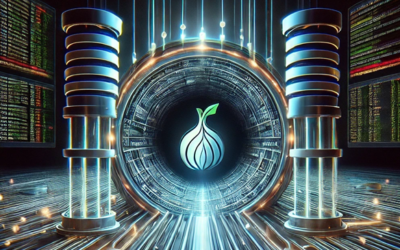Email remains one of the most consistently targeted attack surfaces in cyber security. Despite evolving defences, phishing, spoofing, and impersonation attacks continue to be effective---largely due to gaps in how organisations authenticate the email they send. The frontline of defence? A triad of DNS-based protocols: SPF, DKIM, and DMARC. SPF (Sender Policy Framework) allows domain owners to define which mail servers are authorised to send on their behalf. DKIM (DomainKeys Identified Mail) ensures email integrity by attaching cryptographic signatures to outgoing messages. DMARC (Domain-based Message Authentication, Reporting and Conformance) enables domain owners to instruct how unauthenticated mail should be handled, and provides reporting for monitoring abuse. These mechanisms have long been recommended, but enforcement across the email ecosystem has been inconsistent in our...
JUMPSEC LABS
The JUMPSEC Lab is a place where the technical team get creative and showcase their latest security research, publications, interesting news and general thoughts! We love what we do and are passionate about security, with some great upcoming projects planned, bookmark our site and stick around to see what we are working on.
Tutorial – How to setup a forward proxy with HAProxy that routes TOR through a VPN…in docker
At JUMPSEC we foster a research culture and want to provide people with tools and safe environments necessary to conduct research. As part of my ongoing work in setting up a new...
Ranking MFA Methods – From Least to Most Secure
My Perspective on MFA Security In an era of relentless cyber threats, multi-factor authentication (MFA) has become a cornerstone of modern security practices, adding an extra...
Active Cyber Defence – Taking back control
Every good cybersecurity article needs a Sun Tzu quote, here is one lesser known quote from Sun Tzu to start us off. What Happened? Recently, JUMPSEC’s Detection and Response Team (DART) caught a Red Team inside one of our MxDR clients' networks using a honeypot server. The honeypot server was set up using Thinkst Applied Research’s project called OpenCanary. This open-source project...
NTLM Relaying – Making the Old New Again
I am old enough to remember that it was not always possible to get domain admin within the first hour of a test via Active Directory Certificate Services (ADCS) misconfigurations or over permissioned SCCM NAA accounts. At present we are spoilt for choice in regards to privilege escalation vectors within the on-premise AD environment's, but I wanted to take a look at some of the other...
Building Forensic Expertise: A Two-Part Guide to Investigating a Malicious USB Device (Part 2)
In this part 2, we'll walk you through the step-by-step process of setting up and conducting a Digital Forensics and Incident Response (DFIR) investigation using a virtual machine (VM). We’ll cover everything from configuring the VM to ensure it’s completely isolated to tackling the challenges of USB passthrough with a write blocker. You'll also learn about the risks of using public threat...
Building Forensic Expertise: A Two-Part Guide to Investigating a Malicious USB Device (Part 1)
JUMPSEC believes heavily in learning and developing through real world experience. The incident described in this blog post presented a fantastic opportunity for 3 junior team members to learn first hand how to conduct, report and respond to an incident investigation. This blog post is split into two parts: Part I focuses on the prerequisites and preparation work done before kicking off the...
Adversary at the Door – Initial Access and what’s currently on the menu
Based on the data from the Cyber Security Breaches Survey 2024, phishing with malicious links or malware remains the most common initial access vector, followed by impersonation. The challenge with impersonation attacks is that current technology often struggles to accurately determine the purpose of a website. Although checks on domain maturity, reputation, categorization, and certificates are...
SSH Tunnelling to Punch Through Corporate Firewalls – Updated take on one of the oldest LOLBINs
In my formative days of learning network hacking, SSH tunnelling was amongst the first tunnelling techniques that I learnt. I still remember trying to repeatedly decode my notes and diagrams on the rather cumbersome syntax of single port forwarding with the -L and -R flags, which at the time was taught as “the way to do it”. If your foothold is (luckily) a Linux server, then you’re blessed with...
How to Handle Development Projects in a Pentest Company
If you are a pentester you probably never really think about programming. Instead you are testing what others have developed. However, every now and then a quick python or bash script is needed to exploit some stuff you have found, or automate a certain process you are using. Things become interesting when you are in a penetration testing company that has many strong penetration testers and...
How Cloud Migration is Affecting AppSec – A Red Teamer’s Perspective
Introduction I’ve recently spoken at several conferences about the changes that are underway within red teaming as a result of cloud migration. My team and I have been delivering majority cloud red team work over the last year and the differences are becoming more apparent by the day. One point I’ve mentioned as ‘controversial’ at several of these events is that cloud migration has actually made...
Disclaimer
The information provided on this website is to be used for educational purposes only. The author is in no way responsible for any misuse of the information provided. Any actions and or activities related to the material contained within this website is solely your responsibility.


